 ★★★★½
★★★★½
“It’s mercy, compassion, and forgiveness I lack. Not rationality.”
Today marks the 10th anniversary for the release in the United States of Kill Bill, Volume 2, completing the saga of The Bride and her quest for vengeance over the man who stole her daugher, killed her husband at the altar and left her in a coma. In honour of this date, we watched the assembled compilation known as Kill Bill: The Whole Bloody Affair. While this has never officially been released – despite regular claims by Quentin Tarantino that he was about to start work on it – the New Beverly Cinema in Los Angeles was allowed to show it in March and April 2011, its second public screening since the Cannes Film Festival of 2004 (there was one at the Alamo Drafthouse).
This helped lead to bootleg editions circulating through the usual sources online, where fans edited the previously-released versions together, to simulate Tarantino’s vision as closely as possible. Of course, these aren’t perfect, if QT’s claims of an extended anime sequence are to be believed. But I’m not inclined to wait around any longer – it’s entirely his own fault I still have not bought a copy of either film, even though they are certainly iconic in our genre. So, how does the combined version play? And a decade after the saga came to its bloody conclusion, does the story still hold up? [Note. This will be less a standard review than a series of feelings. If you want a review, I refer you to the ones written at the time for Volume 1 and Volume 2. I suppose I should also insert a spoiler warning for the rest of this piece. Though if anyone reading this hasn’t seen both films already, you pretty much deserve to be spoilered!]
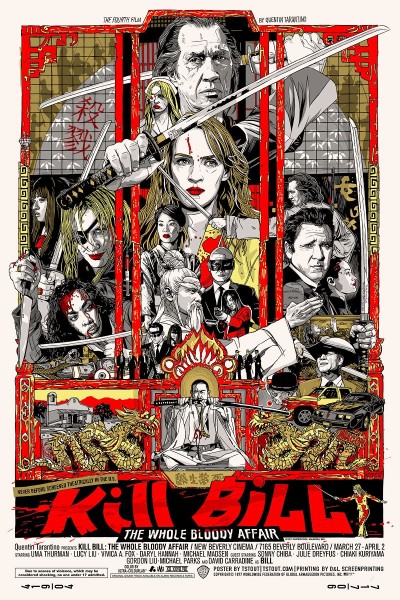 In terms of content, there isn’t much alteration, with the only real change, a small but significant cut at the end of Volume 1. What’s removed, is Bill’s line, “Is she aware her daughter is still alive?” This means neither audience nor heroine know this, until she shows up at Bill’s house for the final confrontation. [I have to say, her daughter certainly doesn’t seem like a four-year old either.] Rather than substance, the biggest difference for me was stylistic: the overall balance seemed more even, as a single entity, than seen as two separate pieces months apart. Volume 2 seemed excessively talky on its own. While that’s still the case, it’s to a significantly lesser degree, being balanced directly by the first half, where The Bride engages in actions, not words. Indeed, the only person she kills in the second part is Bill, a sharp contrast to the pile of corpses left in her wake during its predecessor. His death still feels somewhat rushed, and it’s a shame the original ending – a swordfight between Bill and Beatrix, clad in her wedding dress, on the beach – couldn’t be filmed, because the production went over time.
In terms of content, there isn’t much alteration, with the only real change, a small but significant cut at the end of Volume 1. What’s removed, is Bill’s line, “Is she aware her daughter is still alive?” This means neither audience nor heroine know this, until she shows up at Bill’s house for the final confrontation. [I have to say, her daughter certainly doesn’t seem like a four-year old either.] Rather than substance, the biggest difference for me was stylistic: the overall balance seemed more even, as a single entity, than seen as two separate pieces months apart. Volume 2 seemed excessively talky on its own. While that’s still the case, it’s to a significantly lesser degree, being balanced directly by the first half, where The Bride engages in actions, not words. Indeed, the only person she kills in the second part is Bill, a sharp contrast to the pile of corpses left in her wake during its predecessor. His death still feels somewhat rushed, and it’s a shame the original ending – a swordfight between Bill and Beatrix, clad in her wedding dress, on the beach – couldn’t be filmed, because the production went over time.
My viewing of the film now is also altered, by having seen over the intervening decade, more of the movies which had influenced Quentin, in particular Lady Snowblood and Thriller: A Cruel Picture. I’ve not been a particular fan of this aspect of Tarantino’s work, since the whole City on Fire/Reservoir Dogs thing; I find it gets in the way of enjoying his films, if you’re frequently being reminded of other movies. This kind of homage still works better when it’s slid in more subtly, for example Vernita Green’s pseudonym for her new life being Jeanne Bell, likely a reference to the actress who was the star of the 70’s blaxploitation pic, T.N.T. Jackson. [And, of course, Green’s daughter is called Nikita…] I have to say, QT’s foot fetish seems a lot more blatant now than it did at the time. The most obvious case is when The Bride is trying to regain control of her toes in the back of the Pussy Wagon, but Sofie Fatale’s feet also come in for some attention. Again, perhaps subsequent knowledge plays into the viewing experience.
10 Favourite Lines from The Whole Bloody Affair
- Vernita Green: Black Mamba. I shoulda been motherfuckin’ Black Mamba.
- O-Ren Ishii: The price you pay for bringing up either my Chinese or American heritage as a negative is… I collect your fucking head. Just like this fucker here. Now, if any of you sons of bitches got anything else to say, now’s the fucking time!
- The Bride: Those of you lucky enough to have your lives, take them with you. However, leave the limbs you’ve lost. They belong to me now.
- The Bride: This is what you get for fucking around with Yakuzas! Go home to your mother!
- The Bride: I want them all to know they’ll all soon be as dead as O-Ren.
- Budd: That woman deserves her revenge and we deserve to die.
- Pai Mei: What if your enemy is three inches in front of you, what do you do then? Curl into a ball? Or do you put your fist through him?
- Elle Driver: I killed your master. And now I’m gonna kill you too, with your own sword, no less, which in the very immediate future, will become my sword.
- The Bride: Before that strip turned blue, I would have jumped a motorcycle onto a speeding train… for you. But once that strip turned blue, I could no longer do any of those things. Not anymore. Because I was going to be a mother.
- Bill: You’re not a bad person. You’re a terrific person. You’re my favorite person, but every once in a while, you can be a real cunt.
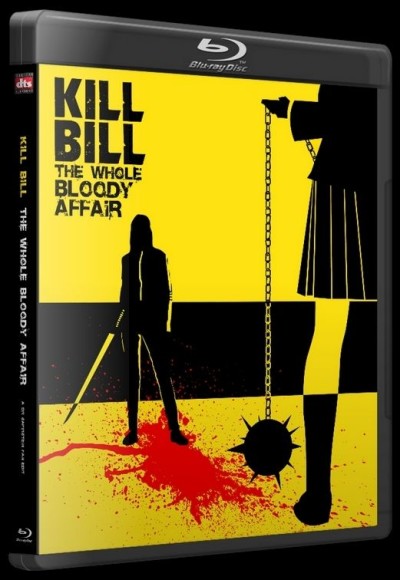 What hasn’t changed is the sheer, unadulterated awesomeness of the fights, as jaw-droppingly brutal and intense as they were ten years ago. Yuen Wo-Ping certainly cements his position as the most inventive and effective martial arts choreographer in history. Though this version has the entire House of Blue Leaves fight in colour, the arterial spray becomes so obviously excessive, as to reduce its overall impact. Much love must also now go to someone barely known at the time, now carving out her own niche: stuntwoman and Thurman double: Zoë Bell. Bonus fun is now had, watching the battles and going, “Zoë… Zoë… Uma… Zoë… Uma… Zoë.” [That’s probably fairly close to the correct ratio!] The anime sequence depicting O-Ren Ishii’s early years is still fabulous and lush, revenge foreshadowing The Bride’s. You can see why, in 2006, Tarantino floated the idea of further films in a similar style, telling of Bill’s and Beatrix’s origins. Although, like all the other Kill Bill sequels he has floated over the years, Quentin’s mouth appears to be moving much faster than any actual production.
What hasn’t changed is the sheer, unadulterated awesomeness of the fights, as jaw-droppingly brutal and intense as they were ten years ago. Yuen Wo-Ping certainly cements his position as the most inventive and effective martial arts choreographer in history. Though this version has the entire House of Blue Leaves fight in colour, the arterial spray becomes so obviously excessive, as to reduce its overall impact. Much love must also now go to someone barely known at the time, now carving out her own niche: stuntwoman and Thurman double: Zoë Bell. Bonus fun is now had, watching the battles and going, “Zoë… Zoë… Uma… Zoë… Uma… Zoë.” [That’s probably fairly close to the correct ratio!] The anime sequence depicting O-Ren Ishii’s early years is still fabulous and lush, revenge foreshadowing The Bride’s. You can see why, in 2006, Tarantino floated the idea of further films in a similar style, telling of Bill’s and Beatrix’s origins. Although, like all the other Kill Bill sequels he has floated over the years, Quentin’s mouth appears to be moving much faster than any actual production.
The combined version does probably run about 30 minutes too long, with Volume 2 in particular need of tightening up. It doesn’t so much reach a climax, as approach it as a limit. Bill’s burbling on about comic-book superheroes is one of those cases where Tarantino’s voice becomes louder than that of his characters (see the first half of Death Proof for a long, drawn-out example of this, perhaps the most self-indulgent dialogue in a filmography largely driven by self-indulgent dialogue). I also remain somewhat skeptical in regard to the deliberate misorder of Beatrix’s revenge. O-Ren Ishii is the first actually killed, according to The Bride’s list, yet we begin with her encountering Vernita Green. While that made some sense when the film was in two volumes, providing a spectacular encounter to end the first half, that’s less the case here. I’ve never found a satisfactory explanation for quite why Green wasn’t simply #1 on the list. But I guess, messing up the timeline is just what Tarantino does.
However, let’s cut to the chase – with the elegance of a pissed-off bride wielding a Hattori Hanzo sword. This remains one of the finest examples of action heroine cinema to come out of mainstream Hollywood, and arguably, hasn’t been matched in the ten years since. And it’s not purely for The Bride: O-Ren, Vernita, Elle and GoGo all deserve acknowledgement as memorable characters, any of whom could stand on their own. Even as someone who can generally take or leave most of Tarantino’s directorial work – I think he’s a better screenwriter – I can’t deny what he crafted here is an undeniable, four-hour classic of the genre.
“The lioness has rejoined her cub, and all is right in the jungle.”
Gallery: Volume 1
Gallery: Volume 2
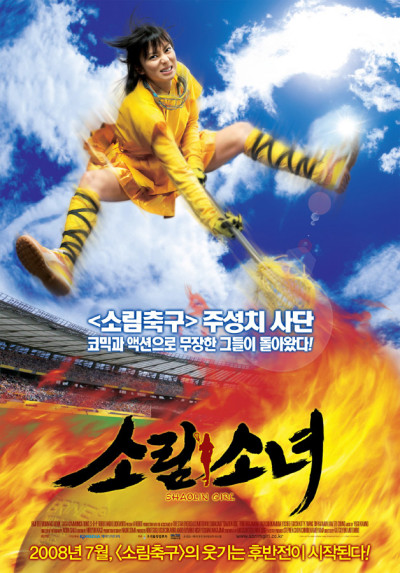 Rin Sakurazawa (Shibasaki) has been training in shaolin kung-fu for over eight years. When she returns to Japan, she finds her dojo abandoned and derelict, and her former master Kenji Iwai (Eguchi) is now working as a cook in a local restaurant. She is recruited by a waitress there, Minmin (Yuqi). for the lacrosse team at the local Seikan University, but learns some harsh lessons on the nature of teamwork The university president, Yuichiro Oba (Nakamura), has another agenda, and seeks to draw Rin over to the dark side, by getting her to use her skills for more violent ends which he can then exploit. But it turns out that she was sent to China for good reason…
Rin Sakurazawa (Shibasaki) has been training in shaolin kung-fu for over eight years. When she returns to Japan, she finds her dojo abandoned and derelict, and her former master Kenji Iwai (Eguchi) is now working as a cook in a local restaurant. She is recruited by a waitress there, Minmin (Yuqi). for the lacrosse team at the local Seikan University, but learns some harsh lessons on the nature of teamwork The university president, Yuichiro Oba (Nakamura), has another agenda, and seeks to draw Rin over to the dark side, by getting her to use her skills for more violent ends which he can then exploit. But it turns out that she was sent to China for good reason…




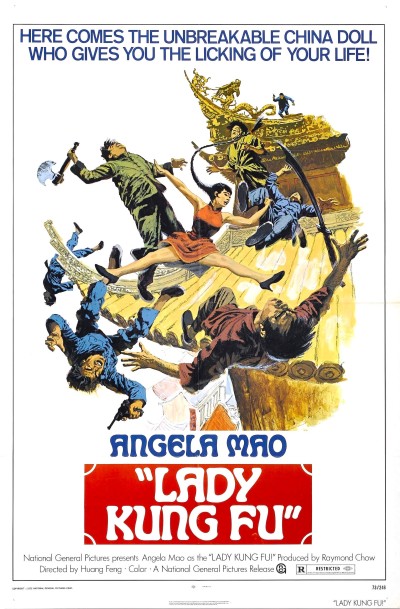
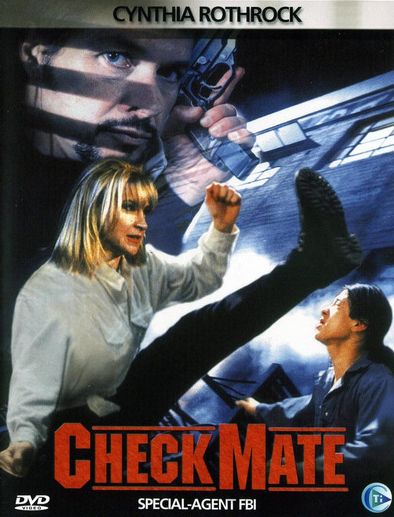
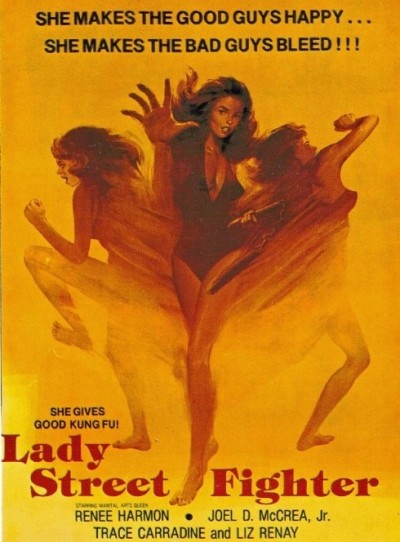 Let me start off by repeating myself, in case you missed it, because I want to be absolutely clear on these points. This is legitimately terrible. This is among the worst films I’ve ever seen. And I speak as someone with over 25 years of watching really bad films. That half-star is solely for amusement to be gathered from how bad this is, because there are basically no redeeming features here at all, and I speak as someone who will tolerate almost any pile of shit with an action heroine in it. This movie is largely responsible for the addition of the word “almost” to the previous sentence, despite being mercifully brief at a mere 72 minutes in length. The half-star is simply because I did reach the end without gnawing a limb off to escape. I think I deserve some kind of Internet prize for that.
Let me start off by repeating myself, in case you missed it, because I want to be absolutely clear on these points. This is legitimately terrible. This is among the worst films I’ve ever seen. And I speak as someone with over 25 years of watching really bad films. That half-star is solely for amusement to be gathered from how bad this is, because there are basically no redeeming features here at all, and I speak as someone who will tolerate almost any pile of shit with an action heroine in it. This movie is largely responsible for the addition of the word “almost” to the previous sentence, despite being mercifully brief at a mere 72 minutes in length. The half-star is simply because I did reach the end without gnawing a limb off to escape. I think I deserve some kind of Internet prize for that.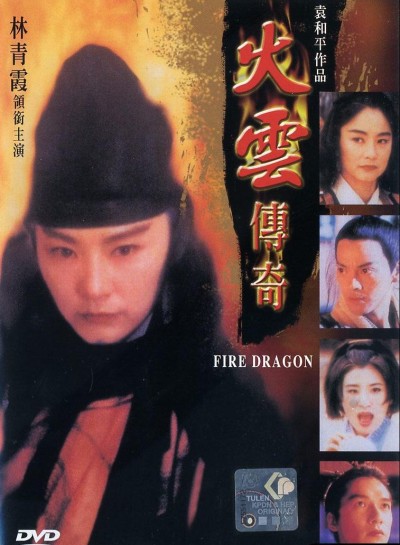 Prince Six (Tan) is plotting rebellion against the legitimate government, but Ming (Chu) has obtained a piece of compromising evidence from a dying Imperial guard. Before he can deliver it, the seal proving his identity is lifted by Tang Lyn-Yu (Ng), who runs a circus troupe, but has set her amorous eyes on Mind. He returns to the troupe, to try and locate the seal, but also there, undercover, is Fire Devil (Lin), who has been tasked by Six with locating and destroying the evidence of his treachery. However, after her involvement in a battle which leaves a young child orphaned, along with her beginning to fall for Ming, she begins to question whether she is on the right side of the fight. It doesn’t count as much of a spoiler to say that it ends with Fire Devil taking on Six, in a finale which involves so many things blowing up, you’d be forgiven for thinking the title of the film was as given at the top.
Prince Six (Tan) is plotting rebellion against the legitimate government, but Ming (Chu) has obtained a piece of compromising evidence from a dying Imperial guard. Before he can deliver it, the seal proving his identity is lifted by Tang Lyn-Yu (Ng), who runs a circus troupe, but has set her amorous eyes on Mind. He returns to the troupe, to try and locate the seal, but also there, undercover, is Fire Devil (Lin), who has been tasked by Six with locating and destroying the evidence of his treachery. However, after her involvement in a battle which leaves a young child orphaned, along with her beginning to fall for Ming, she begins to question whether she is on the right side of the fight. It doesn’t count as much of a spoiler to say that it ends with Fire Devil taking on Six, in a finale which involves so many things blowing up, you’d be forgiven for thinking the title of the film was as given at the top.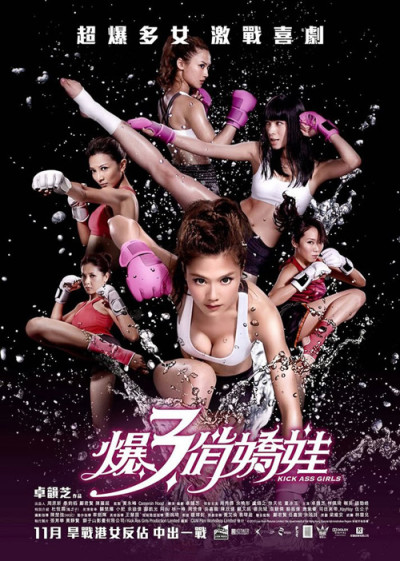 Boo (Chow) owns a failing boxing gym, and largely survives only by catering to masochistic geeks, with fantasies of being beaten up by Lara Croft, etc. To try and recoup customers driven away by her abrasive style, she hires the bubbly Miu (Lo), as a replacement for childhood friend TT (Yu), with whom she broke up after a spat over a man. Just as Miu brokers a reconciliation, the trio get an unexpected job offer, to work in Indonesia as bodyguards for the mysterious Lady Zhuge (Tong). Except, they eventually discover, this was just a lure to bring them in as fresh meat for her all-female fight club, where they must battle to the death.
Boo (Chow) owns a failing boxing gym, and largely survives only by catering to masochistic geeks, with fantasies of being beaten up by Lara Croft, etc. To try and recoup customers driven away by her abrasive style, she hires the bubbly Miu (Lo), as a replacement for childhood friend TT (Yu), with whom she broke up after a spat over a man. Just as Miu brokers a reconciliation, the trio get an unexpected job offer, to work in Indonesia as bodyguards for the mysterious Lady Zhuge (Tong). Except, they eventually discover, this was just a lure to bring them in as fresh meat for her all-female fight club, where they must battle to the death.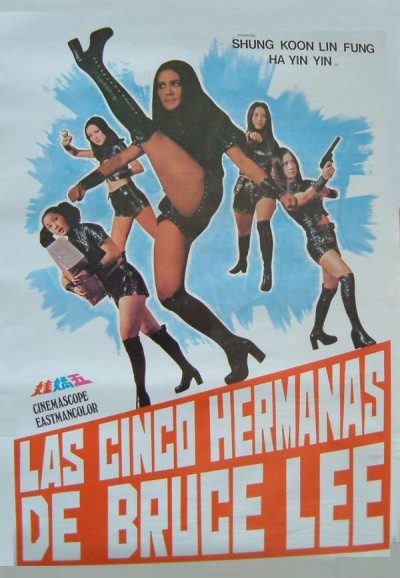 Four years after Bruce Lee’s death, and film-makers were still trying to fool moviegoers into believing their product had some connection to kung-fu’s first global star. Not sure where the deception occurred, as the print here simply overlays the new title over the (still-legible) Hong Kong one,
Four years after Bruce Lee’s death, and film-makers were still trying to fool moviegoers into believing their product had some connection to kung-fu’s first global star. Not sure where the deception occurred, as the print here simply overlays the new title over the (still-legible) Hong Kong one, 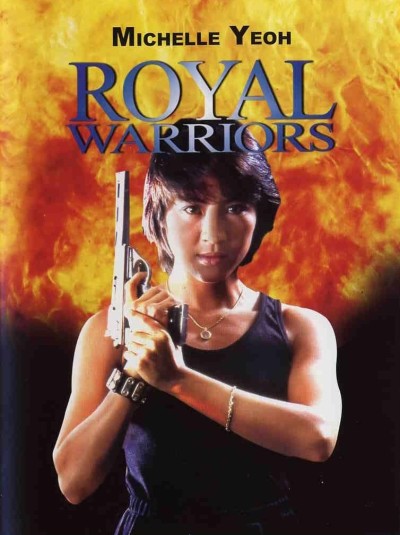 It’s really the finale which makes this stand out – not necessarily for its qualities (though it’s far from bad), more for the batshit insanity. It sees ex-cop Michelle Yip (Yeoh) storm a construction site in an armoured car, to rescue the coffin containing the body of a colleague, which has been suspended from a crane by the bad guy. How the hell did we get here? Good question. It all starts on a plane back from Japan, where among the passengers are Yip, Interpol agent Peter Yamamoto (Sanada, recently seen creating doomsday diseases in Helix) and security guard Michael Wong (Wong – a lot of thought clearly went into that character). On the flight, there’s a hijack, in an attempt to free a killer being extradited to Hong Kong; our heroic trio foil it, killing the hijackers. But that just brings down the wrath of the rest of the gang, who vow to take their revenge on the people who killed their colleagues. And they really don’t care who gets in their way, as a mass gun-battle at a night-club shows – it also gets Yip taken off the case.
It’s really the finale which makes this stand out – not necessarily for its qualities (though it’s far from bad), more for the batshit insanity. It sees ex-cop Michelle Yip (Yeoh) storm a construction site in an armoured car, to rescue the coffin containing the body of a colleague, which has been suspended from a crane by the bad guy. How the hell did we get here? Good question. It all starts on a plane back from Japan, where among the passengers are Yip, Interpol agent Peter Yamamoto (Sanada, recently seen creating doomsday diseases in Helix) and security guard Michael Wong (Wong – a lot of thought clearly went into that character). On the flight, there’s a hijack, in an attempt to free a killer being extradited to Hong Kong; our heroic trio foil it, killing the hijackers. But that just brings down the wrath of the rest of the gang, who vow to take their revenge on the people who killed their colleagues. And they really don’t care who gets in their way, as a mass gun-battle at a night-club shows – it also gets Yip taken off the case.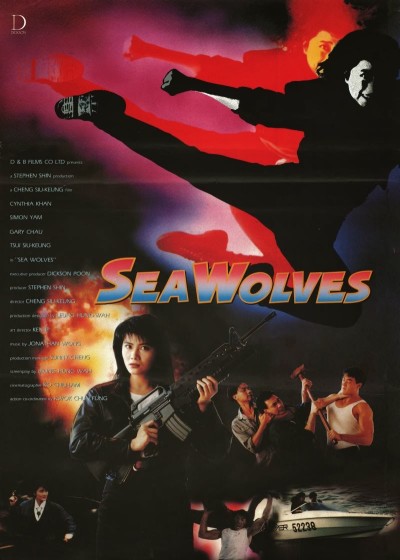 As with the preceding entry, there’s a smattering of social commentary; here, the topic is Vietnamese boat people, who reached Hong Kong in droves during the late eighties. The bad guys are a group of pirates, led by Keung (Chu), who prey on the boats, stripping the refugees of valuables before killing them. On one raid, member of the crew John (Yam) recognizes friend Gary (Chow): while he manages to hide Gary, and stop him from being killed, the stowaway suffers cinematically-convenient amnesia, until the boat docks in Hong Kong.
As with the preceding entry, there’s a smattering of social commentary; here, the topic is Vietnamese boat people, who reached Hong Kong in droves during the late eighties. The bad guys are a group of pirates, led by Keung (Chu), who prey on the boats, stripping the refugees of valuables before killing them. On one raid, member of the crew John (Yam) recognizes friend Gary (Chow): while he manages to hide Gary, and stop him from being killed, the stowaway suffers cinematically-convenient amnesia, until the boat docks in Hong Kong. ★★★★½
★★★★½ In terms of content, there isn’t much alteration, with the only real change, a small but significant cut at the end of Volume 1. What’s removed, is Bill’s line, “Is she aware her daughter is still alive?” This means neither audience nor heroine know this, until she shows up at Bill’s house for the final confrontation. [I have to say, her daughter certainly doesn’t seem like a four-year old either.] Rather than substance, the biggest difference for me was stylistic: the overall balance seemed more even, as a single entity, than seen as two separate pieces months apart. Volume 2 seemed excessively talky on its own. While that’s still the case, it’s to a significantly lesser degree, being balanced directly by the first half, where The Bride engages in actions, not words. Indeed, the only person she kills in the second part is Bill, a sharp contrast to the pile of corpses left in her wake during its predecessor. His death still feels somewhat rushed, and it’s a shame the original ending – a swordfight between Bill and Beatrix, clad in her wedding dress, on the beach – couldn’t be filmed, because the production went over time.
In terms of content, there isn’t much alteration, with the only real change, a small but significant cut at the end of Volume 1. What’s removed, is Bill’s line, “Is she aware her daughter is still alive?” This means neither audience nor heroine know this, until she shows up at Bill’s house for the final confrontation. [I have to say, her daughter certainly doesn’t seem like a four-year old either.] Rather than substance, the biggest difference for me was stylistic: the overall balance seemed more even, as a single entity, than seen as two separate pieces months apart. Volume 2 seemed excessively talky on its own. While that’s still the case, it’s to a significantly lesser degree, being balanced directly by the first half, where The Bride engages in actions, not words. Indeed, the only person she kills in the second part is Bill, a sharp contrast to the pile of corpses left in her wake during its predecessor. His death still feels somewhat rushed, and it’s a shame the original ending – a swordfight between Bill and Beatrix, clad in her wedding dress, on the beach – couldn’t be filmed, because the production went over time. What hasn’t changed is the sheer, unadulterated awesomeness of the fights, as jaw-droppingly brutal and intense as they were ten years ago. Yuen Wo-Ping certainly cements his position as the most inventive and effective martial arts choreographer in history. Though this version has the entire House of Blue Leaves fight in colour, the arterial spray becomes
What hasn’t changed is the sheer, unadulterated awesomeness of the fights, as jaw-droppingly brutal and intense as they were ten years ago. Yuen Wo-Ping certainly cements his position as the most inventive and effective martial arts choreographer in history. Though this version has the entire House of Blue Leaves fight in colour, the arterial spray becomes 
































